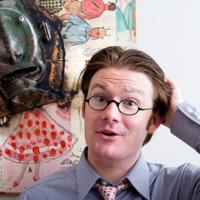Writer and Neurodiversity Advocate Jonathan Mooney talks about how society needs to move away from the moralization of atypical brains and bodies to a more science-based understanding of what drives people’s challenges.
This video appears in:
Transcript
It’s better to be dyslexic than stupid. [laughs] You know? In your own sense of self. It’s better to reframe thinking of yourself through the lens of being the bad kid or the crazy kid and to see yourself through the lens as somebody with attentional differences.
And it is a real moment of progress for an individual, but ultimately, for our society, when we’ve moved away from the moralization of learning and attentional differences - and frankly all forms of atypical brains and bodies - to a more science-based understanding of what drives people challenges, you know?
Because back in the day you were stupid, crazy, lazy, you know? Which is a moralization of difference. However, while it’s progress to shift from stupid, crazy, lazy to dyslexia and ADD, it requires more progress because those words, you know, learning disability, attention deficit hyperactivity disorder, those words don’t moralize difference, they pathologize difference.
They make what are naturally occurring variations into problems inside of people through the lens of sickness or deficit. When the reality is that, you know, these things called disorders are differences in the truest sense of the word. There is unequivocal empirical research that shows that while there are challenges that come with a whole constellation of neurodiversities, there’s also strengths, gifts, and talents that go hand in hand, not despite the challenges or differences, but because of them.
So, the evolution that I apply to myself, that I advocate that we adopt as a society, is to not go back to the days of not having words other than “stupid, crazy, lazy,” not settle for pathologizing oneself, but to embrace the framework that these are neurodiversities that have legitimate challenges, of course. Hey, I don’t spell well. [laughs] I spell at a 3rd grade level, you know, that’s not because I’m dumb, that’s because of a neuro biologically based difference.
And there’s also value to these differences, and strengths, and gifts, and talents. And that’s our work moving forward, you know, as a, as a community, a learning and attentional difference community, but ultimately, as a society to replace a pathology model with a diversity model, and to celebrate neurodiversity as valuable to the world.
For more information about learning disabilities, please visit LDOnLine.org. This video was made possible by a partnership between the National Education Association and WETA.
